Here are my impression of some of books I read or listened during 2017 and 2018. As a rule of thumb I usually take on two books related to business or professional development for every fiction/fantasy book. At first I wanted to rank them from worst to best but then I figured that they are just too different to use the same rule for them all. So this list is not in any particular order. For every entry in the list I point out what in my opinion were the highlights or the reasons I liked them or not, consider this an Amazon-like review but for my personal library.
Hit Refresh: The Quest to Rediscover Microsoft’s Soul and Imagine a Better Future for Everyone
This book is Satya Nadella’s vision of the world. His vision is an inclusive one and a reflection on a sector, that, to this day is very multicultural and welcoming. I think his upbringing story in India is not the typical sad and full struggle drama. Instead it is one of a somewhat privileged kid that was not a genius but hard work and good advice got him on track to move and study into the US where he finally excelled. So that part was not as interesting to me. On the other hand it was very nice to hear his story as an expat, how he suffered from what all aliens suffer: discrimination, struggles with visas, separation from significant other and so on.
To think he is now the head of one of the most powerful organizations world wide is very inspiring. On the other hand, his explanation of technology is too shallow. He uses more the big dreams, the big picture of how the world will be improved by technology and “product places” Microsoft as one of the enablers of such dreams. If you are familiar with current tech tendencies or the stand of the US technology industry on ethics, security, inclusion and such, this section will be nothing new to you.
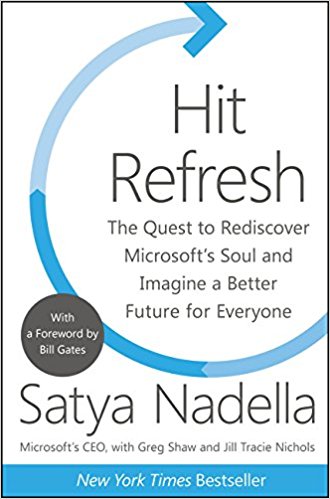
Fire and Fury: Inside the Trump White House
I do not like politics, I am not a US citizen. Still, I cannot deny Donald J. Trump, current POTUS, is a hell of a character. I bought this book with a morbid curiosity, I wanted an extra episode of the apprentice were the new venture was the White House. I even hoped for a a twist were the reader would end up changing his view about current administration. What I got was not what I expected, the book to me was more like a gossip magazine that is obsessed with a circle of people that do things one way. Maybe the wrong way, definitely a politically incorrect way. I do not recommend this book.
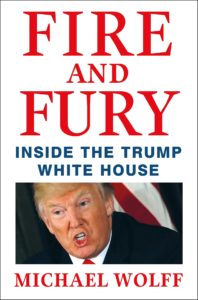
Atlas Shrugged
I said I was not going to rank the books on this list, but this is for sure one of the books that had the biggest impact on me. I know, I know, Ayn Rand gets a lot of heat for her ethical and political views but there are many things that I strongly agree with. In this book she exposes a philosophy known as “Objectivisim”. Just to make it clear, this is not a philosophy book, but a novel, a piece of fiction, with which she tried to make a point. I do not know about philosophy and this I might have not gotten the whole thing or agree with everything 100%. These are the things that I can relate to and why.
Being self-interest is moral, acceptable and desirable.
Why? When you look after yourself and know everyone is doing the same you are more likely to work hard. Notice that to my understanding being self-interested does not mean harming others or not ever helping anyone.
You must be accountable for all of your actions.
Why? Whatever you do, whatever you want or whatever the purpose behind your actions, you must be accountable for them. Saying something like “someone else told me to do this” or “I did it but it is not my fault” is unacceptable. This is best explained with an example, which encompasses a lot more than how I am simplistically going to put it. For example, even when your boss asks you to do something that is wrong you ought to raise your hand say it is wrong and if it goes against reason or your moral standard it is your responsibility refuse the order or even more severe, to quit.
There is a clear distinction between those willing to create and lead by the mere desire to do things the right way. and those who will never even try.
Why? I have noticed that a lot people just want to to do enough to let time or work go by. To get paid for the minimum effort and then go home and do the same next day. On the other hand I have met these other few that try to learn something new every day and make sure to improve on every aspect of their life.
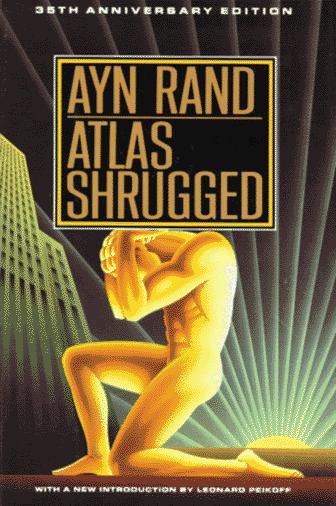
The Four: The Hidden DNA of Amazon, Apple, Facebook, and Google
Scott Galloway makes some observations on how these four companies are taking over the world and how we are clamoring as they rise. There are lots of analogies with religion in this book which I found interesting. For example he compares us asking things to Google as praying to God. It is very interesting and kind of true, it is where we look for answers and were we confess our deepest darkest secrets. In the same fashion he refers to Steve Jobs as a new messiah. A visionary who changed the world and died relatively young. I follow Scott Gallaway on Twitter and I think he is a bit too opinionated on what those four big companies should do.
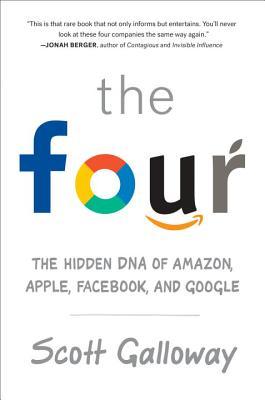
Sprint: How to Solve Big Problems and Test New Ideas in Just Five Days
This book is always at the top of my mind when starting new projects. This book title explain exactly what the main idea is. What I liked the most is the stories about how their methodology has worked for many companies and how it started the spark for bigger and more meaningful projects. Still I think there is an overstatement when they say “Big Problems”. Every story they tell is about validating quick prototypes and generating proof of concepts. True, most of them eventually turned into big successful products but I think no real “Big Problem” is solved in a week.
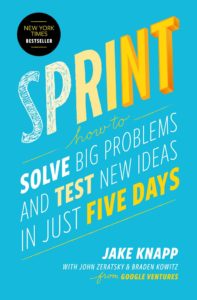
A Game of Thrones (Book 1)
I loved it. The dynamics and complexity of political power depicted of this book are captivating. But even better when you add magic, dragons, witches and demons. However, I found it hard to follow in the audio format. Names, places and titles do not stick as much when such a rich and dense world is being portrayed. After finishing the book I went over and watched the first season on BluRay and now I see what the hype is about. The adaptation is pretty good. In this case and given that the series is so well made I recommend to watch the series instead.
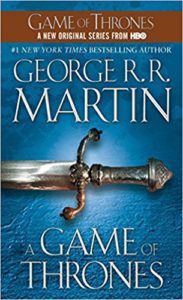
Blink: The Power of Thinking Without Thinking
Trust your gut. This is a book about the power of pattern recognition embedded in the human brain. Malcolm Gladwell presents research and cases were people that were experts in a subject were able to determine certain conditions just with glance. His first example is the story of the Getty Kouros, after a lot of scientific tests, the statue was dated to the time period when these statues were supposed to be from. After the statue was presented to experts, within seconds they said it was a fake. After revisiting the scientific evidence the expert’s opinion was right. It took no Radiocarbon testing, no Patina composition test or anything else. With just a blink they were able to figure out it was not authentic. This is a book worth reading. There are more stories of all sorts, from being able to predict a hit while batting to micro facial expression.
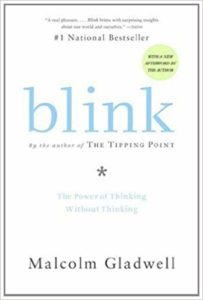
Smart and Gets Things Done
The title gives everything away. You should have two things in mind when hiring. Your candidate should (1) be smart and (2) should get things done. This book talks about software developers but I do think it applies to every job. Some highlights of this book are (1) the jokes about nerdy developers; (2) the idea that there are people that are able to “hit the high notes” repeatedly while there are people that regardless of how hard they try will never hit one. and (3) Hanging around smart folks is cool, but you still need them to get things done, so it is as important as anything else you consider while hiring. It is a short read so I recommend it to anyone that has to hire in the tech industry.
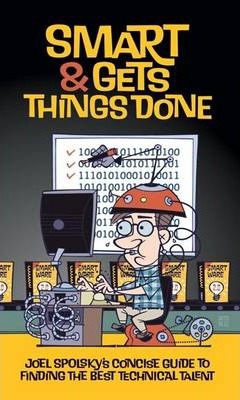
Flowers for Algernon
I read a summary of this book in highschool and barely remembered it. I am glad I re-read it. The premise is the following. Charlie is a very likeable guy that has a mental disability, a subnormal intelligence. Whatever he lacks in wit he has in positive attitude. After a surgery, within a few months span, he becomes very very smart. So smart he becomes the lead scientist behind the people who operated him in the first place. All of this quickly gained intelligence is not on par with his emotional development so he struggles with love, friendship and repressed memories. At the very peak of his development he concludes his intelligence is temporary and that it will sharply drop.
The book is great in every way. This book, besides having a great story, is written in a very particular way: through a diary written by Charlie. So at first it is plagued with typos and it reads as if a 5 or 6 year old wrote it. At the peak of his intelligence the dairy entries are very sophisticated and polished. I highly recommend this book.
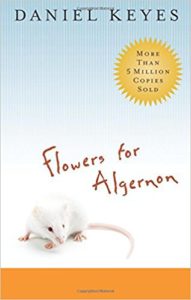
The Four Agreements
I will list them right away. (1) Be impeccable with your word. (2) Don’t take anything personally. (3) Don’t make assumptions. (4) Always do your best. All of them are good advice regardless of your age, gender or religion. Besides the agreement the author presents an analogy to explain how our words create all kind of “agreements”. This agreements are things we hear and internalize as truths. He then creates an analogy on how they act as spells in our day to day life and how we can cast those spells (good or bad) to people that surround us. It is a short book, and easy read and even though I am not into spiritual literature the advice it is good and I think worth practicing.
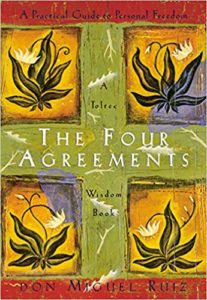
Extreme Ownership
The subtitle is “How U.S. Navy SEALs Lead and Win”. This book has some very intense combat stories from the war in Iraq. The stories are good and emotional. You get the idea of how tough battlefield situations are. Still, Call of Duty teaches the same lessons, if you forcefully apply what you see in the game to a real life situation. I felt like the authors forced the match between business situations and the combat situations they faced in Iraq. I did not see any breakthroughs, any specific method, any non-obvious solution to the problems presented. Overall I did not liked the book. I would not recommend it. If you enjoy war stories you might want to read only war stuff and skip the match to business part.
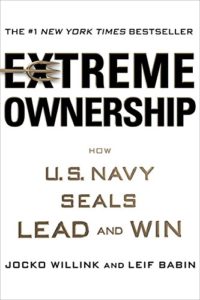
Hats off if you got here. As you can see this is kind of personal and not intended as detailed shopping guide. Nevertheless if you got here, I would love to know what do think of these books? Do you agree with my comments?

Make sure you check my latest posts at nascento.com.
This came just in time, I finished reading a book a couple of weeks ago and now I’m looking for my next one. Out of this list, I’ve only read Hit Refresh. I have mixed feeling about that one, overall I liked it, on the one hand I found inspiring Satya Nadella’s success story, on the other hand I found it a bit too “corporate” to my taste. I currently work for a large corporation and many of the things Satya mentions, seems to be what most large companies are trying to do, things that feel like coming out of some large consultancy firm. For Microsoft seems to be working particularly well, and no doubt Satya’s doing a great job, but I was probably expecting something more “fresh”.
Based on your reviews, I will pick my next book from this list (sorted from most to least interesting to me):
1. Atlas Shrugged
2. Sprint
3. Smart and Gets Things Done
Mario, How is that list going?